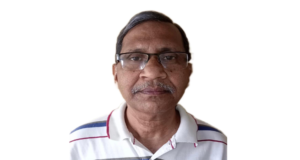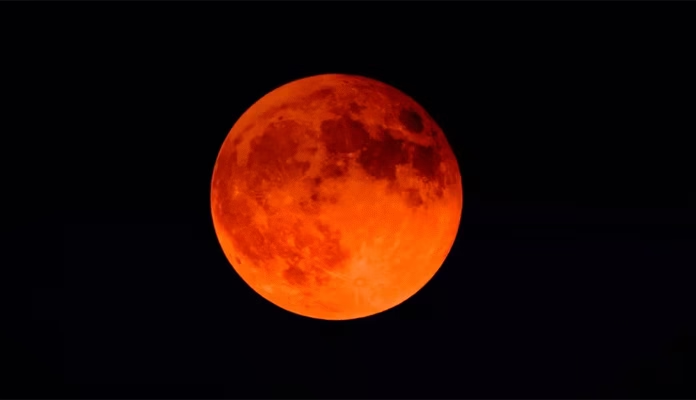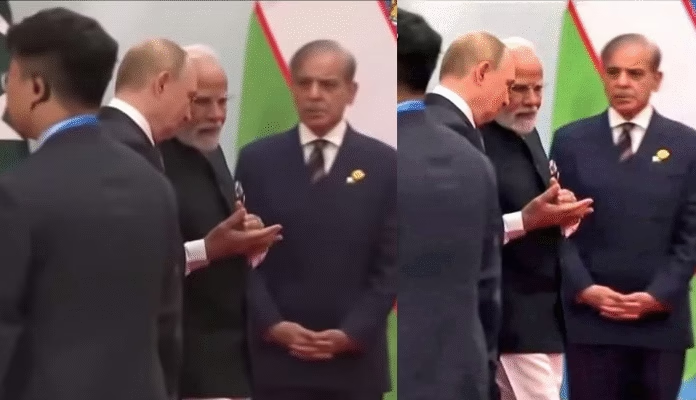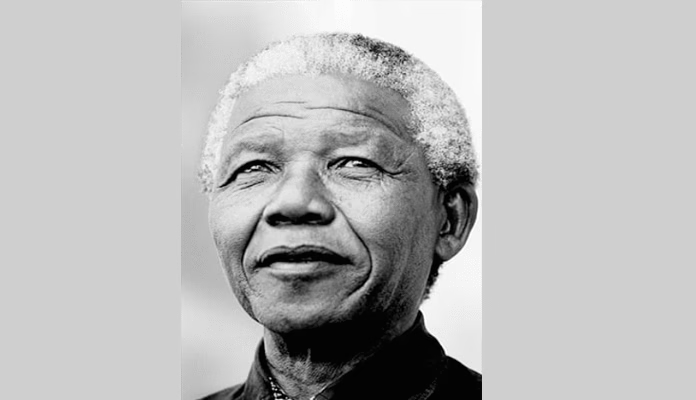 When one switches on a TV and listens to a political debate, the sentence ‘democracy is in danger strikes one’s ears off and on. It compels one to think if really democracy is in danger.
When one switches on a TV and listens to a political debate, the sentence ‘democracy is in danger strikes one’s ears off and on. It compels one to think if really democracy is in danger.
As we know democracy is the system of people’s rule and it was recorded as existing in ancient India in the form of village councils, Janapadas and Maha Janapadas (republics) namely Anga, Avanti, Chedi, Kasi, Kosala, Kalinga, Kamboj, Panchala, Vajji, Vatsa, and several others. In our contemporary times also democracy prevails in one form or the other in several tribal communities, though it was strongly instituted in their village councils before colonial rule. However, in post-colonial India democracy is adopted following the model of the British Parliamentary system and it is in congruence with the idea of political nationalism and the nation-state in contrast to pre-colonial sovereign kingdoms under cultural nationalism that was the land’s heart and soul. In between ancient democracy and the one in practice, India underwent a long spell of monarchy in different parts and imperialism for about 200 years.
Democracy in our nation-state had travelled all the way from January 1950 when the Constitution was adopted. Surprisingly, over these years, many times it has been declared to be in danger. However, a real danger was felt during the emergency in 1975; its survival then was questioned. But democracy survived belying all the doubts and it bounced back with greater force.
A simple question arises in mind, should we make statements off and on that democracy is in danger? Certainly, it should be, if we understand the implication of periodic shouting, jagte raho, (remain alert) by a village or apartment’s watchman. To remain alert is to avoid mishaps. That is why Thomas Jefferson has maintained, “Eternal vigilance is the price of liberty”. Such vigilance is integral to the effectiveness of democracy where its ingrained weakness persists unabated and visible. Naturally, questions are raised on the working of democracy in its true spirit. Sometimes it makes one think about whether the questions are desirable and based on facts because contradicting statements are put forward. It becomes difficult for ordinary citizens to come to a logical conclusion about what is wrong and what is right. A recent example is at hand. On the matter of Sisodia’s arrest, the BJP leader Manoj Tiwari expresses his apprehension that AAP mulls killing Sisodia to bar him from exposing the corruption in the party. A similar charge is labelled by AAP against BJP. The allegation is that BJP plans to kill Sisodia in Tihar jail. Surprisingly, Tihar jail is under the Delhi government!
In such contradictory statements, at least one is correct or both are false. If one is correct then which one? The question arises: is not there a rule of law to protect Sisodia? When the criminal plan is known why not action against it? When the information is there is not there any measure to protect him? The situation that emerges from contradictory statements often does not reflect the spirit of democracy that demands mutual respect, transparency, the rule of law, freedom, national sense, and many others.
Media bring us such contradictory news, and as a result, the statement that democracy is in danger is made time and again. There are many examples in recent days. In Rajasthan, the family members of Pulwama martyr were beaten by police (video recording is the proof) while they were protesting (till protesting when this article is written) against the non-fulfilment of promises made to them. Do not the citizens have the right to protest to express their grievances? Is police beating a solution to their grievances? While Gehlot blames it to be the handiwork of the BJP; Sachin Pilot, a minister in Ghelot’s government, stands with the family of the martyrs and demands action against the erring policemen. What is right: protest to express grievances, police beating, BJP support to their demand or Sachin Pilot’s support as a mark of rebel against the party leader? Where does democracy stand then? What message goes to the public? For the public, it is natural to maintain that when promises are made they must be fulfilled so that the people trust their leaders. But non-fulfilment and subsequent demand create a situation where it becomes difficult to distinguish between people’s demand for justice and political parties’ intention. What often results is tramping upon people’s rights under conflicts among political parties though some problems need party support for a solution.
In our democracy legislature, judiciary and executive are independent. But often it seems the leaders do not have respect for the judiciary. A few years back, the Supreme Court dismissed all the petitions that questioned the veracity of the Rafel deal negotiated by the Modi government. But Congress raises the issue of underdealings now and then, which is nothing but unfortunately a show of disrespect respect towards the judiciary. This is one of the instances. Another example is RSS’s involvement in Gandhi’s assassination. RSS involvement was doubted; it was banned by the Nehru government. But the ban was lifted as no link could be established. In 1966 Indira Gandhi set up Justice J.L. Kapur Commission to investigate the link. The Commission after investigation gave a clean chit to RSS. But surprisingly, the Congress and its MP Rahul Gandhi go on disrespecting the Congress government’s order and Judiciary Commission’s report by blaming RSS time and again for involvement in the assassination Godhra incident of 2002 haunts Modi despite the court’s acquittal. Such statements in public create doubt about the functioning of the judiciary. The same tone is carried in an article in RSS magazine that raises questions on the impartiality of the judiciary. It showed concern that anti-India forces are using Supreme Court as a ‘tool’. Is it possible? The question mark on the judiciary, if based on valid grounds, is certainly not an indication of a strong democracy. In these days we hear about a proactive judiciary. The alleged trend admittedly overshadows the independent role of legislature and executive in a democracy.
Party politics is a crucial element in democracy. But is this element working in the right and desirable direction? Doubt arises when one party blames (not policy criticism) the other, though all of them have pledged commitment to democracy at their formation and functioning. Party- politics at the local level has not come up as a binding force. For example, party-based elections to village councils are apparently a dividing factor of village harmony. Casual observations over the years would bring to notice how the community’s sense of cooperation, fellow feelings, personal relations, etc. have been adversely affected after the introduction of party politics in panchayat elections.
Over the years, it can be easily observed that people’s representatives are concentrated in some families. This concentration or vansvad with a bogie of loyalists undoubtedly stands inimical to the spirit of democracy as contesting in elections has become a costly affair beyond ordinary citizens’ imagination. Democracy in fact works as gerontocracy with members of a family practically inheriting the right to represent people. Though others are not denied the right, but the situation often creates a losing field for new aspirants. They do not possess competitive power in the face of huge money, previous support base and the desire to hold power by the family members. Entry of mafias, billionaires, and other anti-social elements block the possibility of winning of new aspirants. The right to equality is thus denied in practice though theoretically, all have equal access to opportunities. No doubt, a few families rule the states and the country, or attempt to do so. In fact, they invest in politics and earn when elected. It reminds George Orwell’s Animal Farm where animals who fought for equality, freedom, etc. ended up in a system of dictatorship. Vansvad is an indication of the declining spirit of democracy. In addition cases of involvement of elected representatives in corruption are not unknown in the country. The trend almost creates an unequal competing ground for ordinary citizens. No doubt, enemies of equal rights are enemies of a vibrant democracy.
Often we hear abusive words hurled at leaders, particularly in the government. It is s, then what will the followers learn? Obviously, the people who are at the foundation of democracy are pushed towards the culture of indecency, for mahajano yena gatah sa panthah (the path followed by great people is the right path). These abusive leaders create an indecent base for democracy which otherwise demands civic sense. An example is at hand. M. Birupakshappa who is alleged of corruption and is granted interim bail organised or allowed his followers to organise a ‘victory’ procession to celebrate the event. Is it an event to be celebrated? The insensitivity of the leader obviously has percolated down to the followers!
Democracy is not inimical to the sovereignty of a nation-state. So, any problem in the nation-state, whether real or imagined, is internal to its democracy. But Rahul Gandhi, a representative of the people in the Parliament, cries foul at the working of our democracy in a foreign land. A representative of people, unable to solve the ills, if any, in the country itself tries to escape from his responsibility and buy sympathy from a foreign land that colonised us for centuries. It is like Jai Chand who, to fulfil his personal agenda, supported Muhammad Ghori! Similarly, Manishankar Aiyer is reported to be seeking Pakistan’s intervention so that Congress comes to power. Will democracy be healthy in this way? They do so because there is no provision to incriminate them for such undemocratic acts. These politicians are free from the provisions of criminal offence with regard to what they should say not unlike common citizens.
Recently, an ex-MP, Raja Pateria released on bail after remaining 80 days in jail because of his instigation to Dalits, tribes, and minorities to defeat Modi in order that Constitution is saved. He was sent to jail because the court did not grant bail. On release, he blamed BJP and reiterated his commitment to fighting against it to defend the rights of these above communities. How is the Constitution safe when politicians promote casteist thinking? Is BJP his enemy, the judiciary that did not grant bail, or the government that allegedly fails to defend these communities? Is India a country of these communities only? Do all other communities enjoy their rights properly? The such mindset of politicians is anti- Constitutional and a burden on democracy. It unfortunately underlies political parties formed on the basis of religion, caste or community. Besides, leftist ideology is not conducive to Indian democracy; as a result, these parties have deviated from the core of Marxism. Samajwadi Party is not community or caste-based. But its functioning is caste and community based and it is reflected in the speeches of Akhilesh Yadav. Recently, he did not show his concern for the crime committed by killing Umesh Pal, or the terror created by these criminals; but he is vocal in linking the action against the criminals to their belonging to the minority community. Caste politics in UP and Bihar is an open truth and a challenge to our democracy.
The sanctity of the judiciary, ED and CBI is often blamed by alleging them as puppets in the hands of the present government. Can they be so? If these institutions are vulnerable to pressure under a government, they can be so under any government. The point is not to blame the government, but to find ways to check their vulnerability if any, for the political parties have their representatives in the legislature. To doubt the working of these institutions is to deny the existence of the rule of law in the country. In West Bengal or in Jharkhand, corruption was reported. While taking action the ED and CBI were blamed as the stooge of the central government that always acts in revenge. But what about the corruption that is reported? And what about the money seized from the accused? Similar remarks also come from K. Savita, MLC from Telangana and Tejashwi Yadav of Bihar when the former came under ED and CBI radar and the latters’ parents and sister were questioned on the land-for-job scam. Undoubtedly, corruption has happened and been reported; it then becomes the responsibility of the government to find out who did it. Moreover, being people’s representatives and politicians, they have the role and responsibility to facilitate the probe instead of arousing the sentiment of supporters for protest, violence and other divisive activities. A probe does not mean conviction if one is innocent.
But interestingly, those who are under ED or CBI radar claim innocence and blame the ruling party’s revenge on them ‘for rendering selfless service to the public’. Whether it is revenge, the government’s routine work or the accused’s innocence will be proved once the investigation is completed. It is ridiculous to prove one’s innocence by arousing the sentiment of people with emotional and misguided information. They reiterate in media their commitment to serve the public (i.e. people meaning supporters?) as they are not afraid of any revenge. Ridiculous it is indeed. Do the leaders serve the public? Then why do they take salary and pension? It is to be noted that most politicians, even in the government, have NGOs to serve the people. Are the representatives not efficient in ‘serving’ the people through the democratic government?
The multi-party system proves to be problematic even though they are eulogised for a country of diversity like India. But surprisingly, to be in power, political parties with opposite ideologies come together. Then what is the need for so many parties? It is no unknown fact about the source of party funds. More parties mean greater use of black money. The question is if parties of different ideologies can come together to form a government then why so many parties and why exploit the sentiment of people by feeding them particular ideologies? Apparently, there is no ideology in politics except for coming to power, and this practice is like cheating public sentiment which is at the foundation of democracy. These parties often create problems in the working of the government. It is not unnoticed when opposition parties who have corruption charges against their members come together and create public opinion against the government and constitutional institutions. They block and oppose policies of national interest. They create suspicion about the existence of the rule of law in the public mind. Public opinion is good for democracy, but misguided public opinion often goes against its spirit.
Often it is very difficult for the public to filter the truth when doctored videos are circulated on social media. It creates tension in society leading to acts of violence. Even contradicting views render real video messages doubtful. The problem of Bihari workers in Tamilnadu is one such example. K. Anamalai is booked for the alleged false video on the issue while the government assure measures to protect these workers. The simple question is: if the video is false why preventive and protective measures? If the incident did not take place then why is this sensation? Does the sensation strengthens democracy or weakens it by weakening people’s trust in politicians?
How distorted opinion is created is evident from the continuing probe against liquor scams in Delhi. The ED and CBI probe the liquor scam and certainly the minister involved in making liquor policy comes under the radar of investigation. Ridiculously, AAP never raises liquor issues, but harps on Sisodia’s contribution to creating a world-class education system! How a state minister can create a system different from the national policy though education is on the State list? At the national level, curriculum contents, working hours, teachers’ number and appointments, etc. are governed by overall central and state rules. And how the system of education is of global standard when parents send their children to costly public schools in the country and outside? A political prank to fool the public is obvious! Where is the truth and what is the mechanism with the public in democracy to prove it? If people are involved in finding the truth then what’s about the time needed for their individual roles in their different capacities? When Sisodia headed 18 departments what’s about his contribution to 16 departments besides the excise and education ministries?
Democracy seems to be a victim of ideological clashes. All parties and activists apparently have distinct ideologies. Unfortunately, the youths in India in recent years are found guided by a single ideology without respect to other ideologies. The commitment to an ideology makes them blind to judging issues of national interest. An ideologically different party forming the government and its policies are opposed tooth and nail by them. In these years, youths are influenced by international propaganda against India whether it comes through or from universities, vested interest groups, India haters and terrorists, or from paid activists and media. Sadly, the opposition’s views on Kashmir issues, as appear, to strengthen Pakistan’s evil design rather than the interest of the country. The government may make the wrong decision, but the opposition has the responsibility to suggest a better alternative instead of outrightly rejecting the decision. Allegedly wrong decisions of the government and no suggestion from the opposition practically lead nowhere. Therefore, silence on some issues is better than going on talking nonsense.
Practically, the problem arises in decision-making when all groups and the public have different views and do not reach any consensus. The decision has to be taken for the majority interest; otherwise, there would be no decision and thus no change in the status quo. Democracy however demands change but stands helpless between a decision and no decision. Under such a situation any decision by the government for the majority good is not autocratic; it rather stands with the spirit of democracy based on the ‘majority’. Such a decision, however, should not ignore or become the basis for excluding the minority. Our democracy advocates equality and so our constitution provides for positive discrimination and affirmative action for the good of the minority. The spirit is more important in policy-making than the majority and minority issues. And one cannot satisfy all the groups with diverse views and problems at the same time. Choice has to be made at a time though it may displease some.
All these problems do not take us to any point to mark that democracy is in danger. Such irregularities are inherent in the functioning of democracy and are just like ripples on the surface which cannot help in fathoming the depth and greatness of the ocean. The problems are temporary, sometimes misrepresented and blown up by misguided and stupid politicians. However, these can sometimes be taken as cautions to think of strengthening democracy further. In India, democracy can never be in critical danger due to two important but interrelated factors: (1). Indians have been democrats from ancient times and thus remain so in spirits. (2). When democracy encounters problems then good leaders emerge to bring it back to its working position. When democracy was threatened during an emergency, J.P. Narayan led the country which resulted in a coalition government. The tendency of dictatorship died out. At the time of the economic crisis, P. V. Narashima Rao became the crisis manager. When democracy was overburdened with scams and vansvad, Modi rose as a moderator. In fact, democracy has its self-healing mechanism and it will remain with us as long as we need it.
(Written by Professor M.C.Behera, Rajiv Gandhi University, email: mcbehera1959@gmail.com)



